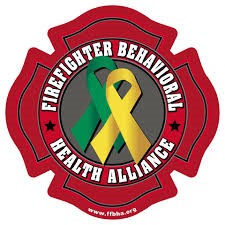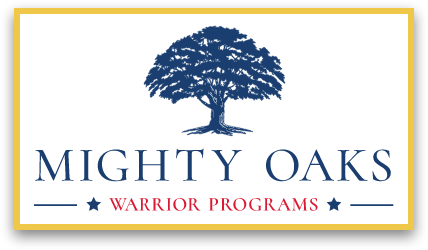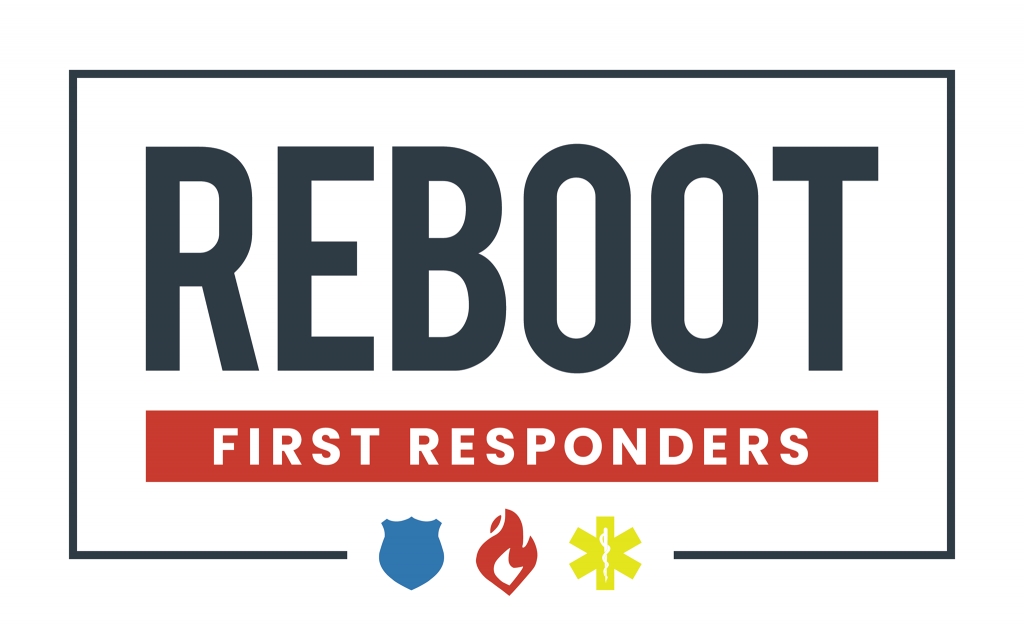
Why Do Things the Hard Way
Trust in the Lord with all your heart; do not depend on your own understanding.
Seek his will in all you do, and he will show you which path to take.
Psalm 3:5-6 NLT
Adversity is a common part of the job for cops, firefighters, and medics. We often face these challenges head-on, leading to personal growth and resilience. By confronting difficulties directly, we gain a deeper understanding of ourselves, acquire new skills, and learn valuable lessons from our failures. These experiences strengthen us and prepare us to handle whatever life throws our way. By deliberately choosing challenges and making tough decisions, you’re training yourself to handle future adversity confidently, building resilience while learning new skills.
The Websters-Merriam dictionary defines adversity as “a state or instance of serious or continued difficulty or misfortune.” Failure, difficulty, catastrophe, danger, discomfort, trouble, and worry are some of our everyday experiences. It is impossible to avoid adversity. For most of us, we shy away from hardships. After all, adversity is strongly linked to suffering, and our nature is to seek pleasure and avoid pain.
We can rejoice, too, when we run into problems and trials, for we know that they help us develop endurance. And endurance develops strength of character, and character strengthens our confident hope of salvation. And this hope will not lead to disappointment. For we know how dearly God loves us, because he has given us the Holy Spirit to fill our hearts with his love.
Romans 5:3-5
American novelist James Lane Allen is credited with saying, “Adversity does not build character; it reveals it.” Success Story podcast host Scott D. Clary added on X (formerly Twitter), “A person’s true character can only be measured by how they respond when times are tough. Facing difficulties is inevitable; learning from them is optional.”
Adversity and suffering remind us that we live in a broken world where pain and suffering are unavoidable. They also highlight that our faith is tested more during challenging times than good ones.
Success and personal growth are closely tied to our ability to recognize and tap into our inner strengths and resilience. Over the years, researchers have investigated different aspects of human potential and identified four key quotients that help us understand our emotional, social, cognitive, and resilience skills.
Our Four Main Intelligence Types
Cognitive intelligence has traditionally been assessed using the Intelligence Quotient (IQ). Emotional Quotient (EQ), often called emotional intelligence, is our ability to understand, manage, and effectively express our emotions. Social Quotient (SQ), or social intelligence, measures our capacity to interact with others and navigate the complexities of social situations.
Lastly, the term “adversity quotient” (AQ) reflects our ability to be resilient and succeed despite challenges. AQ encompasses our capacity to recover from setbacks, maintain a positive attitude in difficult circumstances, and demonstrate perseverance in facing obstacles.
Adversity comes to us in various forms. Some individuals may face physical adversity, such as a career-ending injury that dramatically alters the course of their lives. Others may experience mental and emotional adversity due to conditions like post-traumatic stress, traumatic brain injury, depression, or exhaustion.
Social interaction is essential to life, but many struggle with social skills, making finding friends, starting a family, or securing employment challenging. This results in social adversity. Additionally, spiritual adversity can arise from a lack of faith, diminishing hope, compassion, and love.
Financial security is a common concern in today’s society. The pressure to keep up with others can lead to anger and jealousy, resulting in financial adversity.
If it’s easy, you’re not growing
In 1997, Dr. Paul Stoltz introduced the “Adversity Quotient.” As an expert in resilience and the author of the book “Adversity Quotient: Turning Obstacles into Opportunities,” Dr. Stoltz categorizes individuals based on their ability to handle adversity. He classifies people into three groups: Quitters, Campers, and Climbers, each reflecting a different approach to overcoming challenges.
Individuals who quit quickly become overwhelmed by negativity, causing them to abandon their goals and miss meaningful opportunities to face challenges. Campers might show some initiative but prioritize comfort and struggle when facing obstacles. Climbers, on the other hand, are achievers. They encounter challenges directly and remain steadfast in their pursuit of success. Their determination and resilience distinguish them from others.
Climbers learn that success is earned, not given. They strive for success, make mistakes, get back up, try again, and grow exceptionally strong. Successful people learn how to manage stress and adversity, improving their AQ.
Dr. Stoltz defined the concept of AQ as follows:
- AQ is a measure of resilience.
- AQ predicts how well an individual endures hardships using their current abilities.
- AQ assesses who can exceed their performance expectations and who cannot.
- AQ indicates who is likely to give up quickly and who continues to persevere.
- AQ forecasts who can overcome their current struggles and who may experience a negative impact on their lives.
Hard in Normal – So Embrace the Suck
There will come a time when your life will suck. That’s life, but staying in that position is a choice. You must accept the suck if you want to escape it. The phrase “Embrace the Suck” is attributed to a young marine near the beginning of Operation Iraqi Freedom, and it carries a great message! It reminds us that even when things get tough or uncomfortable, we can accept the situation and focus on making it better.
Embracing the suck is all about facing challenges head-on, which can help us grow and learn. This positive attitude has helped the military deal with tough times, showing that we can tackle difficult situations together and become stronger!
When you embrace challenges, you empower yourself. By facing difficult situations head-on, you move forward and achieve success. Embracing the struggle makes it feel less overwhelming, and you’ll feel proud of your efforts and the results. Ultimately, confronting these challenges helps you emerge stronger and more confident.
Overcoming Adversity
In his blog How To Turn Adversity Into Your Greatest Advantage, entrepreneur Bedros Keuilian writes: Sometimes the most painful, stressful, and darkest times in your life set you up to become the next and best version of yourself. However, the setup will require you to know that you deserve success and abundance, work like a rented mule, and be willing to pay your dues! Never accept adversity as anything other than a setup for your next big move. Never back down from doing the hard work everyone else is afraid to do.
To overcome adversity, consider the following strategies:
- Maintain a Positive Mindset: Focus on what you can control and seek lessons from your challenges.
- Leverage Your Support System: For emotional support and guidance, contact friends, family, or professionals.
- Break Down Challenges: Divide your challenges into manageable steps and take action incrementally to prevent feeling overwhelmed.
- Practice Self-Care: Prioritize physical and mental well-being through exercise, healthy eating, and relaxation techniques.
- Get Professional Help: If adversity significantly impacts your daily life or mental health, don’t hesitate to consult a professional.
Scripture reminds us that the Apostle Paul experienced suffering due to his faith in God and commitment to the Gospel. In 2 Corinthians 4:8-9, Paul recounts his life as one of affliction, perplexity, persecution, and being struck down. Yet, he stood unwavering—uncrushed, not driven to despair, never forsaken, and not destroyed.
In Romans 5:3- 6, he writes that his tribulations can lead to patience, experience, and hope and that the love of God is shed abroad in our hearts. Philippians 4:11, Paul says he’s figured out how to be okay with whatever life throws at him.
Paul’s resilience in adversity shows that our strength during hardships is rooted in a deep faith in God.
As First Responders, we have sworn to protect the good and fight against evil. However, many have lost sight of their priorities and placed their jobs above everything else. If you are experiencing a lower sense of self-worth, depression, misplaced guilt, difficulty remembering or discussing trauma, emotional numbness, dissociation (being unaware of the present moment), disconnection from your everyday life, hyper-arousal and constant vigilance for danger, irritability or unexplained anger, feelings of jitteriness, or difficulty concentrating on tasks, as well as anxiety disorders like panic or intense distress, it’s essential to talk to someone and seek help.
Always put God first, family second, and career last.
IF YOU HAVE THOUGHTS OF SUICIDE – GET HELP NOW
Law Enforcement – COPLINE (800)COPLINE (267-5463)
Firefighters / Medics – FIRE/EMS HELPLINE (800) 731-FIRE (3473)











This was so great. The Author is the real deal, and speaks from experience, and he is still actively seeking more knowledge.